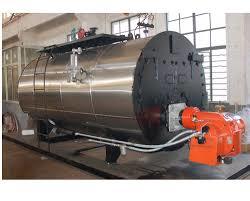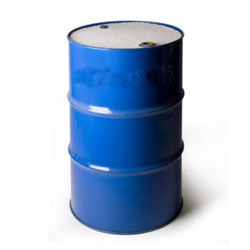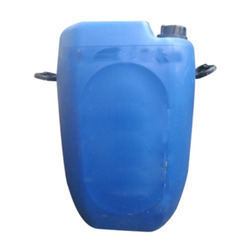Boiler Water Treatment
Price 85.0 INR/ Kilograms
MOQ : 500 Kilograms
Boiler Water Treatment Specification
- Purity
- High
- Form
- Liquid
- Grade
- Industrial Grade
- Type
- Boiler Water Treatment
- Usage
- Industrial
- Application
- Water Treatment
Boiler Water Treatment Trade Information
- Minimum Order Quantity
- 500 Kilograms
- Payment Terms
- Cash Advance (CA), Cash in Advance (CID), Cheque
- Supply Ability
- 20 Kilograms Per Day
- Delivery Time
- Days
- Sample Available
- Yes
- Sample Policy
- Free samples are available
- Packaging Details
- GALON
- Main Domestic Market
- All India, West Bengal, Telangana, Rajasthan, Chandigarh, Manipur, Andaman and Nicobar Islands, Andhra Pradesh, Nagaland, Tripura, Sikkim, Central India, Mizoram, Uttarakhand, Maharashtra, Karnataka, Assam, Jharkhand, Uttar Pradesh, Gujarat, West India, Madhya Pradesh, Punjab, Arunachal Pradesh, Pondicherry, Kerala, Dadra and Nagar Haveli, Bihar, Chhattisgarh, Daman and Diu, East India, North India, Goa, Tamil Nadu, South India, Meghalaya, , Delhi, Jammu and Kashmir, Lakshadweep, Odisha, Haryana, Himachal Pradesh
- Certifications
- ISO 9001 : 2015 certified and Msme Certified.
About Boiler Water Treatment
Boiler water treatment is the process of conditioning and treating water used in boilers and cooling systems to prevent corrosion, deposits, and other issues that can cause equipment damage and reduced efficiency. Boiler water treatment is an essential aspect of boiler maintenance and is necessary to ensure that boilers and cooling systems operate safely and efficiently.
The goals of boiler water treatment include:
1. Preventing corrosion: Boiler water treatment helps prevent corrosion by removing dissolved oxygen, which is a major contributor to corrosion, and by controlling the pH of the water to reduce the likelihood of acidic or alkaline corrosion.
2. Preventing scaling and deposits: Boiler water treatment helps prevent the formation of mineral deposits and scale, which can reduce the efficiency of the boiler and lead to equipment damage.
3. Controlling microbiological growth: Boiler water treatment helps control the growth of bacteria, algae, and other microorganisms in the water, which can cause fouling, corrosion, and other problems.
4. Maintaining water quality: Boiler water treatment helps maintain the quality of the water used in the boiler, ensuring that it meets the requirements of the boiler and the associated equipment.
There are several types of boiler water treatment, including:
1. Filtration: Filtration is used to remove suspended solids from the water, which can cause fouling and reduce the efficiency of the boiler.
2. Chemical treatment: Chemical treatment involves adding chemicals to the water to control pH, prevent corrosion, and control microbiological growth.
3. Oxygen scavenging: Oxygen scavengers are used to remove dissolved oxygen from the water, which is a major contributor to corrosion.
4. Blowdown: Blowdown involves periodically removing a portion of the water from the boiler to reduce the concentration of dissolved solids and prevent the buildup of scale and deposits.
Boiler water treatment is typically carried out by trained professionals who follow industry best practices and guidelines. Proper boiler water treatment can help ensure the safe and efficient operation of boilers and cooling systems and can help prevent costly equipment damage and downtime.
FAQs of Boiler Water Treatment:
1. Why is boiler water treatment important?
Ans: Boiler water treatment is important because it helps prevent corrosion, scaling, and other issues that can damage equipment and reduce efficiency. Proper water treatment can also help extend the life of boilers and cooling systems.
2. What are some common problems associated with untreated boiler water?
Ans: Common problems associated with untreated boiler water include corrosion, scale buildup, fouling, reduced efficiency, and equipment damage.
3. What are some common types of boiler water treatment chemicals?
Ans: Common types of boiler water treatment chemicals include oxygen scavengers, alkalinity builders, pH adjusters, and scale inhibitors.
4. What is an oxygen scavenger in boiler water treatment?
Ans: An oxygen scavenger is a chemical that is added to boiler water to remove dissolved oxygen, which is a major contributor to corrosion.
5. What is blowdown in boiler water treatment?
Ans: Blowdown is the process of removing a portion of the water from the boiler to reduce the concentration of dissolved solids and prevent the buildup of scale and deposits.
6. How often should boiler water be tested and treated?
Ans: Boiler water should be tested and treated on a regular basis, typically every 3 to 6 months, depending on the type of boiler and the operating conditions.
7. What are some common methods of boiler water treatment?
Ans: Common methods of boiler water treatment include chemical treatment, filtration, and blowdown.
8. Who is responsible for boiler water treatment?
Ans: Boiler water treatment is typically the responsibility of the facility manager or maintenance team, who should work with trained professionals to ensure that water treatment is carried out properly.
9. Can untreated boiler water be dangerous?
Ans: Untreated boiler water can be dangerous, as it can lead to equipment damage and failures, as well as safety hazards such as boiler expl
osions.
10. What are some best practices for boiler water treatment?
Ans: Best practices for boiler water treatment include regular testing and monitoring, proper chemical treatment, blowdown to control dissolved solids, and maintaining proper pH and alkalinity levels. It is important to work with trained professionals and follow industry best practices and guidelines.

Tell us about your requirement

Price:
Quantity
Select Unit
- 50
- 100
- 200
- 250
- 500
- 1000+
Additional detail
Mobile number
Email
More Products in Boiler Chemicals Category
Oxygen Scavenger
Price 75 INR / Kilograms
Minimum Order Quantity : 100 Kilograms
Classification : Inorganic Chemicals
Type : Other
Grade : Industrial Grade
Form : Powder
PH Booster Chemical
Price 65 INR / Unit
Minimum Order Quantity : 100 Units, ,
Classification : Inorganic Chemicals
Type : Liquid
Grade : Industrial Grade
Form : Powder


 Send Inquiry
Send Inquiry




